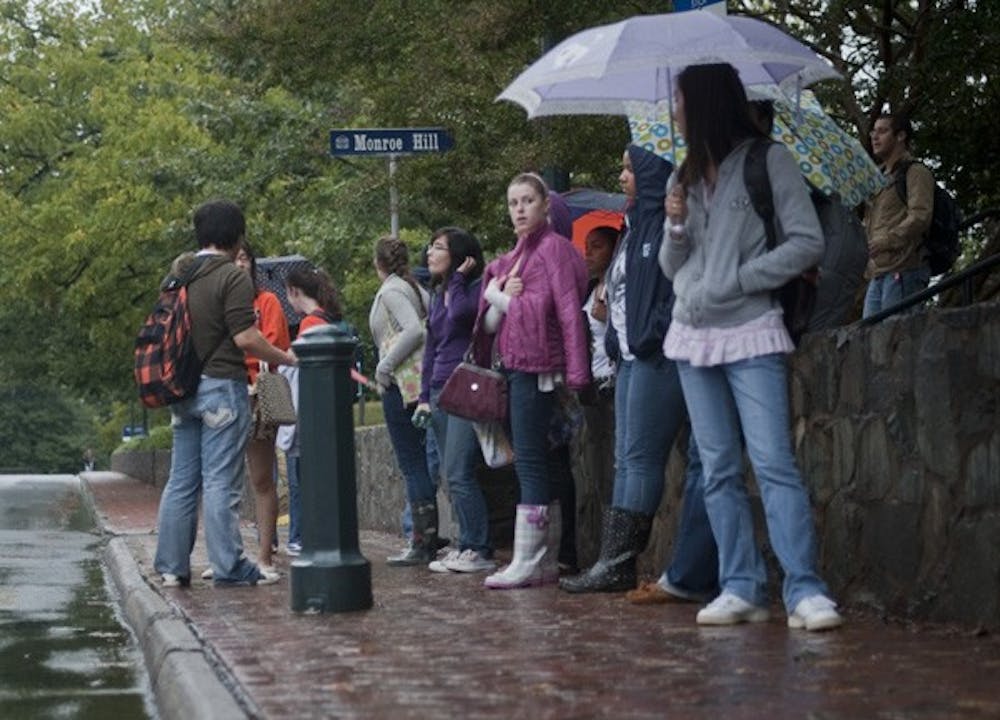Although students may have felt they were caught in a deluge in between classes Monday, Charlottesville is approaching drought conditions, and local farmers are feeling the effects.
In a recent press release, the Rivanna Water & Sewer Authority announced that the area has received 1 inch of total rainfall since Aug. 1, which falls well short of the 5-6 inches expected. Rivers and streams are running low and have dropped dramatically during the past month.
Environmental Sciences Prof. Robert Davis said Charlottesville had received less than .1 inches of rainfall before Sunday. The next day's rain, in contrast, brought an addition 2.5 inches.\nNevertheless, this still does not seem to be enough. The record snowfall from last winter has helped to ensure that groundwater levels are manageable, Davis said, but groundwater reserves are becoming depleted. A long period of rainfall will be necessary to restore reserves.
National Weather Service forecaster Michael Rusnak said Lake Chesdin, the main water supply for central Virginia, was "dangerously low." The region had to implement a mandatory water restriction for the last two weeks and emergency water restriction the past two days.
Low rainfall has greatly affected the farming community in and around Charlottesville.
"It has been challenging mostly because of the lack of water, and the heat makes it difficult to get production where it needs to be," said Alan Moore, head of sales at the Local Food Hub, a community-supported nonprofit organization based in Charlottesville that bolsters small family farms. He added that overall crop yields are down because many crops grow slowly during times without rainwater.
If rainfall suddenly and rapidly picks up, however, some crops could actually be harmed, Moore said. For example, fruits such as apples and grapes can crack if they are suddenly exposed to heavy rainfalls after a period of dryness.
Leslie Jenkins, a farming partner at Planet Earth Diversified, said many of her crops were unable to withstand the storm last weekend because of the previous lack of precipitation. In short, the long dry spell has simply caused problems.
"This is the first year that our well has gone dry," she said.
Tom Martin of Poindexter Farms called the dry spell "awful" and said it has had many negative effects on his crops. He reported that he was only able to produce 72 cans of blackberry jam, even though he had expected enough berries to produce 300. In addition, his neighbor's farm lost more than half of its corn crop, he said.
In fact, a dry spell could have led to disaster for his cattle if they had not used rotational grazing, Martin said.
Davis said Monday's heavy rainfall aided in the replenishment of the ground water reserves, but the soil will need to see slow and steady rainfall to recuperate fully.
Still, signs of hope could be on the horizon. For example, Davis said, the remnants of a tropical storm could bring several more inches of precipitation to the area tomorrow. In addition, the time of year will inevitably have an effect on weather conditions.
"We are approaching the cooler fall season, and our risk assessment modeling is clearly telling us that we have the water storage to get through the winter of 2010-11, so there are no near-term plans to seek drought restrictions," stated Tom Frederick, executive director of the Rivanna Water & Sewer Authority, in the press release.







